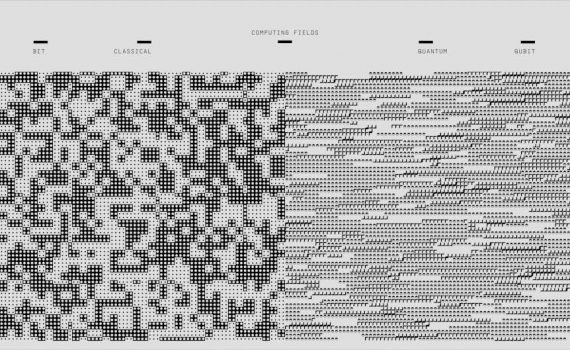charge code lookup ky pdf
Category : Uncategorized
Kentucky charge codes are alphanumeric identifiers classifying criminal offenses, essential for legal processes. They link to Kentucky Revised Statutes (KRS) sections, providing a structured framework for offense classification and penalties.
1.1 Understanding the Importance of Charge Codes in Kentucky
Kentucky charge codes are essential for classifying criminal offenses, ensuring consistency in legal proceedings. These alphanumeric codes link directly to specific Kentucky Revised Statutes (KRS) sections, providing clear definitions and penalties. They facilitate accurate record-keeping, legal research, and data analysis. Charge codes are vital for law enforcement, courts, and public access to criminal information. Their standardized structure ensures transparency and efficiency in the legal system, aiding in fair and consistent application of the law across the state.
1.2 Overview of the Kentucky Revised Statutes (KRS)
The Kentucky Revised Statutes (KRS) serve as the official compilation of state laws, providing the legal foundation for criminal offenses and charge codes. Each KRS section defines specific crimes, penalties, and legal procedures, ensuring clarity and consistency in the justice system. Accessing the KRS is essential for understanding the legal basis of charge codes, as they directly correspond to specific statutes. The KRS is maintained by the Kentucky Legislature and is available online, offering a reliable resource for legal research and interpretation.

Structure of Kentucky Charge Codes
Kentucky charge codes follow an alphanumeric system, organizing criminal offenses for clarity and efficiency. Each code links to specific KRS sections, aiding legal processes and research.
2.1 Alphanumeric Classification of Criminal Offenses
Kentucky’s criminal offenses are classified using alphanumeric codes, combining letters and numbers for precision. This system ensures uniformity in legal documentation and data retrieval. Each code corresponds to specific crimes, facilitating efficient case management and record-keeping. The alphanumeric structure aids law enforcement, courts, and researchers in quickly identifying offense details. This method enhances accuracy and streamlines legal processes, making it a vital tool for Kentucky’s judicial system. Proper classification is essential for consistent application of the law.
2.2 Linking Charge Codes to Specific KRS Sections
Kentucky charge codes are directly tied to specific sections of the Kentucky Revised Statutes (KRS), ensuring a clear legal framework. Each code maps to a statute, defining the offense, penalties, and legal defenses. This linkage provides precise references for courts, law enforcement, and researchers. By connecting charge codes to KRS sections, the system ensures consistency and accuracy in legal interpretations. This direct correlation is essential for understanding the legal implications of a charge and applying the law fairly and uniformly across the state.

Uniform Offense Reporting (UOR) System in Kentucky
Kentucky’s Uniform Offense Reporting (UOR) system ensures standardized crime data collection and analysis, facilitating consistent reporting across law enforcement agencies and supporting effective crime trend analysis statewide.
3.1 Role of UOR Codes in Criminal Data Collection
UOR codes play a vital role in Kentucky’s criminal data collection by standardizing offense reporting. Each code represents a specific crime, enabling consistent reporting across law enforcement agencies. This uniformity allows for accurate aggregation and analysis of crime data, facilitating the identification of trends and patterns. The UOR system supports effective resource allocation and policy-making by providing reliable and comparable crime statistics. Law enforcement agencies use UOR codes to report incidents to state and federal databases, ensuring comprehensive crime tracking and analysis. This system is essential for maintaining accurate and actionable criminal justice data.
3.2 How UOR Codes Facilitate Standardized Reporting
UOR codes ensure consistency in reporting criminal offenses by providing a uniform classification system. Each code corresponds to a specific crime, eliminating variability in how offenses are recorded. This standardization enables law enforcement agencies to collect and analyze crime data efficiently. By using UOR codes, agencies can aggregate data statewide, identifying crime trends and patterns. The system promotes accuracy and comparability in crime statistics, supporting informed decision-making and resource allocation. Standardized reporting also enhances transparency and accountability in criminal justice processes.

Classification of Criminal Offenses in Kentucky
Kentucky classifies criminal offenses into felonies and misdemeanors, with felonies further divided into classes (A, B, C, D) based on severity. This system ensures consistent legal proceedings.
4.1 Felonies vs. Misdemeanors: Key Differences
Kentucky criminal offenses are categorized into felonies and misdemeanors, differing in severity and penalties. Felonies are serious crimes, classified from Class A (most severe) to Class D, often resulting in imprisonment. Misdemeanors are less severe, typically punished with fines or short-term jail sentences. The classification impacts legal proceedings, sentencing, and long-term consequences, emphasizing the importance of understanding these distinctions for legal strategies and outcomes.
4.2 Subclasses of Felonies and Their Significance
Kentucky felonies are subclassified into Classes A, B, C, and D, reflecting varying degrees of severity. Class A felonies carry the harshest penalties, including lengthy imprisonment, while Class D represents the least severe. These subclasses guide sentencing, influencing prison terms, fines, and parole eligibility. Understanding these distinctions is critical for legal professionals and individuals involved in criminal cases, as they directly impact sentencing outcomes and legal strategies. Accurate classification ensures appropriate consequences and fairness in the justice system.

How to Perform a Charge Code Lookup in Kentucky
Kentucky charge codes can be looked up using online databases, legal directories, or the Kentucky Court of Justice website, ensuring easy access to specific offense details.
5.1 Utilizing Online Databases and Legal Directories
Online databases and legal directories provide efficient access to Kentucky charge codes. The Kentucky Court of Justice website offers a searchable database, while legal directories like Westlaw or LexisNexis allow users to find codes by offense description or KRS number. These tools facilitate quick and accurate lookups, ensuring users can identify specific charges and understand their legal implications. Utilizing these resources is essential for legal professionals, researchers, and individuals needing precise information on Kentucky charge codes.

5.2 Searching by Offense Description or KRS Number
Searching by offense description or KRS number streamlines the charge code lookup process. Users can input specific terms like “theft” or “assault” into legal databases to find corresponding codes. Alternatively, entering a KRS number directly links to the associated charge code, ensuring precision. Cross-referencing with official sources like the Kentucky Revised Statutes guarantees accuracy. This method is particularly useful for legal professionals and researchers, as it provides quick access to detailed offense information and associated legal definitions.

Legal Validity of Digital Charge Code Documents
Kentucky legally recognizes digital charge code documents, including Kentucky Violation Code 91000, ensuring compliance with legal standards. Digital tools facilitate secure and efficient paperwork processing.
6.1 Completing Paperwork Online: Kentucky Violation Code 91000
Kentucky Violation Code 91000 highlights the legal validity of digital documents, enabling online completion of paperwork. This shift from physical to digital processes aligns with modern efficiency demands. The Kentucky Revised Statutes (KRS) and online databases provide resources for charge code lookups, ensuring compliance with legal standards. While centralized PDF resources may not exist, official websites like the Kentucky Court of Justice offer reliable tools for digital document processing and charge code interpretation, maintaining legal integrity and accuracy in digital formats.
6.2 Ensuring Compliance with Kentucky Legal Standards
Compliance with Kentucky legal standards requires accurate interpretation of charge codes and adherence to official resources. The Kentucky Court of Justice website and legal databases provide reliable tools for verifying charge code details. Legal professionals play a crucial role in ensuring compliance, especially for complex cases. Proper interpretation of charge codes is essential to avoid misapplication of penalties and legal procedures. Always consult official sources, such as the Kentucky Revised Statutes (KRS), for the most accurate and up-to-date information to maintain legal integrity and compliance.

Penalties Associated with Kentucky Charge Codes
Kentucky charge codes determine penalties based on offense severity. Felonies carry harsher punishments, including prison time, while misdemeanors may result in fines or shorter jail sentences.
7.1 Understanding Sentencing Guidelines for Felonies
Kentucky’s felony sentencing guidelines classify offenses into categories like Class A to Class D felonies and capital offenses. Each class carries specific penalties, ranging from probation to life imprisonment. Factors such as prior convictions and aggravating circumstances influence sentencing. The Kentucky Sentencing Commission establishes these guidelines to ensure consistency. For instance, a Class A felony may result in 20 to 50 years in prison, while a Class D felony could lead to 1 to 5 years. Understanding these guidelines helps in predicting potential outcomes for felony charges.
7.2 Misdemeanor Penalties and Their Implications
Misdemeanor penalties in Kentucky are less severe than felonies, typically involving fines, probation, or short-term jail sentences. Offenses are classified into classes, with specific penalties varying by severity. A Class A misdemeanor may result in up to 12 months in jail, while a Class B misdemeanor could lead to 90 days. These penalties impact defendants’ criminal records, potentially affecting employment and societal standing. Understanding misdemeanor implications is crucial for navigating legal consequences and seeking appropriate legal counsel.

Resources for Kentucky Charge Code Research
Kentucky charge codes can be researched through official state websites and legal databases. The Kentucky Court of Justice website offers detailed charge code information and legal resources for public access.
8.1 Kentucky Court of Justice Website: A Key Resource
The Kentucky Court of Justice website serves as a primary resource for charge code research, offering detailed information on criminal offenses and legal procedures. It provides access to searchable databases, legal definitions, and links to relevant statutes. Users can find charge codes, understand their classifications, and explore associated penalties. The website is a reliable source for legal professionals, researchers, and the public, ensuring accurate and official information. It is often the first step in understanding Kentucky’s legal framework and charge code system.
8.2 Legal Research Databases and Their Benefits
Legal research databases, such as LexisNexis and Westlaw, provide comprehensive resources for charge code lookup in Kentucky. These platforms offer advanced search functionalities, enabling users to find specific charge codes, associated statutes, and case law. They are invaluable for legal professionals, researchers, and students, ensuring access to accurate and up-to-date legal information. While some databases require subscriptions, they offer detailed analysis and cross-referencing tools, making them essential for in-depth legal research and understanding Kentucky’s charge code system effectively.
Accurate interpretation of Kentucky charge codes is crucial for legal proceedings. Utilizing reliable resources ensures compliance and understanding, aiding in effective navigation of Kentuckys legal framework.
9.1 Importance of Accurate Charge Code Interpretation
Accurate interpretation of Kentucky charge codes is vital for ensuring fair legal proceedings. Misinterpretation can lead to incorrect penalties or legal defenses, impacting case outcomes significantly. Charge codes, linked to specific Kentucky Revised Statutes (KRS) sections, define offenses and penalties, making precise understanding crucial. For instance, distinguishing between felony classes (e.g., Class A, B, C) determines sentencing severity, including imprisonment and fines. Reliable resources, such as official KRS texts or legal databases, are essential for accurate interpretation, ensuring justice and legal compliance.
9.2 Final Tips for Navigating Kentucky’s Legal System
Navigating Kentucky’s legal system requires careful attention to detail, particularly when dealing with charge codes. Consulting legal professionals ensures accurate interpretation and application of statutes. Utilize reliable resources like the Kentucky Court of Justice website for up-to-date information. Cross-reference charge codes with Kentucky Revised Statutes (KRS) to confirm accuracy. Understanding the distinction between felonies and misdemeanors, as well as their subclasses, is crucial for assessing penalties. Stay informed about legal updates and seek guidance when interpreting complex charge codes to ensure compliance and fairness in legal proceedings.
